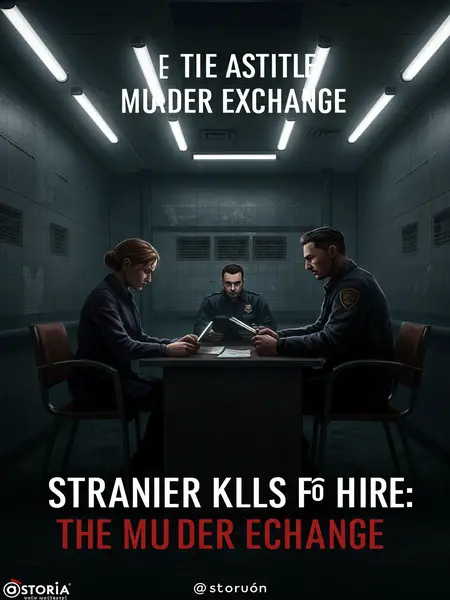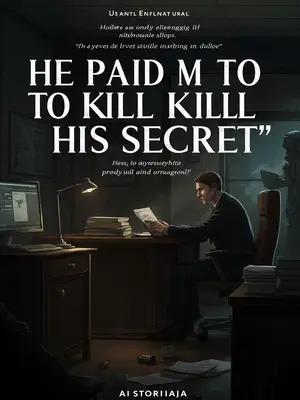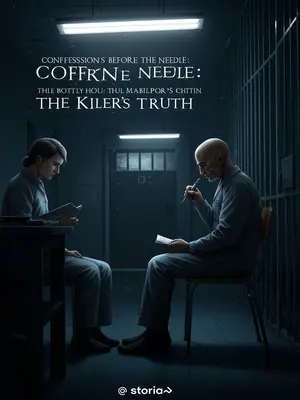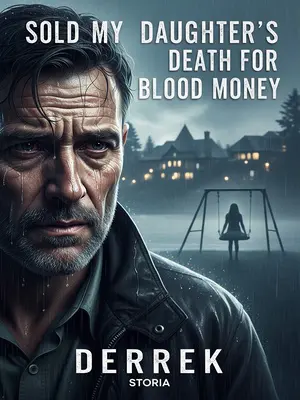Chapter 3: The Interrogation
When we tracked down Eric Chen, he was working at a photo studio in his hometown in Ohio.
The studio was tucked between a laundromat and a hardware store, in a town where everyone still waves at strangers. Eric wore a faded blue shirt and looked up from editing wedding photos when we walked in. No panic, no surprise—like he’d been expecting us.
When he saw us, he wasn’t surprised at all and cooperated completely.
He even offered us coffee, hands steady as he poured. Some suspects get squirrelly, start sweating bullets. Not Eric. He folded his hands and waited for us to speak first.
The interrogation went weirdly smooth. He confessed to everything and described the murders in detail.
His eyes never left the table. The only sound was the soft hum of the air conditioner and the scratch of Lisa’s pen. He walked us through his timeline—what doors he used, how he cleaned up, what kind of knife he brought. His voice was flat, almost bored, like he was explaining how to change a tire. It made my skin crawl.
Time, method, weapon—every detail matched the evidence. But everyone was left with a bigger question.
There was no gap, no slip, no contradiction. But as he talked, the room got colder. The rest of the squad listened from behind the glass, trading looks. Nobody could figure out what the hell made this guy tick.
The motive was fuzzy.
You could see it in Lisa’s eyes—she wanted to shake him, force him to care. But Eric just sat there, like he’d already left the building.
No matter how we pressed, Eric Chen just repeated, “No reason. I just wanted to kill.”
He said it in a monotone that made your stomach turn. “No reason. I just wanted to kill.” Over and over, like it was a line from a script. He wouldn’t meet our eyes.
It sounded like something out of a movie about a psychopath.
Half the squadroom rolled their eyes, but there was something off here—he was too calm, too practiced. We’d seen the movies, sure, but real life rarely works like that.
“Three people died horribly, but would a killer like that risk everything to save a stranger in an alley? Eric, that doesn’t fit the profile of a cold-blooded murderer.”
Lisa leaned forward, her voice dropping to a whisper. “Why help her? Why not walk away?” Eric just shrugged. His lips twitched, almost like he wanted to smile but couldn’t remember how.
Eric went silent.
The silence dragged on. Lisa scribbled in her notepad. I watched the clock tick. Sometimes, people break under pressure. Eric just stared at the wall.
We wondered if he had an accomplice. He denied it. “The cameras only cover the street. If you come and go through the storm drains, wear a wig, and change clothes a few times, you can avoid being tracked.”
He recited it like he was listing groceries. No hesitation. It was almost like he wanted us to catch him, or at least to know how clever he thought he was.
His file was on the table: 30 years old, no criminal record, hometown in rural Ohio, over a hundred miles from Chicago.
The printout was thin—no priors, no red flags. His apartment was spotless—no posters, no hobbies, just a single framed photo of his parents on the dresser. He lived alone, paid his taxes, and never missed a rent check. Nothing about him screamed ‘killer.’
In 2005, his younger sister drowned by accident. After high school, the family moved to Michigan and lived there for ten years. In 2015, Eric’s parents died one after the other, and he moved back to Ohio to work as a photographer.
A handful of old photos, some sympathy cards from neighbors. You could map his life out in Polaroids. No hint of violence, not even a speeding ticket.
A month ago, he came to Chicago, dodged every camera, and killed the Harper family.
No trail, no receipts, nothing but a one-way bus ticket. He rented a car under a fake name, paid cash for everything. The only blip was the suitcase and Rachel’s story.
He handled the scene carefully, left no trace, clearly didn’t want to get caught. But that didn’t match with him saving Rachel. Maybe she reminded him of someone.
That’s what gnawed at me. Killers who plan like that don’t take chances—especially not for strangers. Maybe there was a ghost in his past, a face he couldn’t forget.
In recent years, Eric had no close female friends. My eyes landed on the name Emily Chen.
I thumbed through his phone records, old emails. Emily’s name kept popping up—his little sister. She drowned when Eric was barely out of high school. No girlfriends since, no close female coworkers. That’s rare for a guy his age.
Lisa pulled up Emily Chen’s records. Rachel looked nothing like Emily, but their voices were similar.
I listened to Rachel’s interview tape twice. It wasn’t the look, it was the sound—something in the way she said ‘help’ that set Eric off. That was the connection.
That was it. In the dark, Eric heard a familiar voice and decided to step in.
The human brain works in weird ways. I’ve seen it before—trauma anchors you to a sound, a phrase, a memory. Maybe saving Rachel was his way of rewriting the past.
“Quick, check Emily Chen’s cause of death.”
Lisa was already on her phone, calling the Ohio PD. My gut twisted, waiting for an answer.













